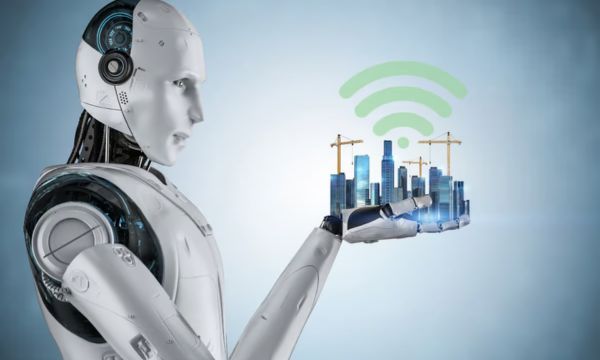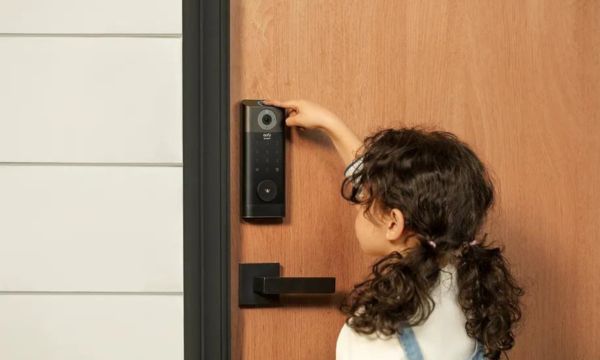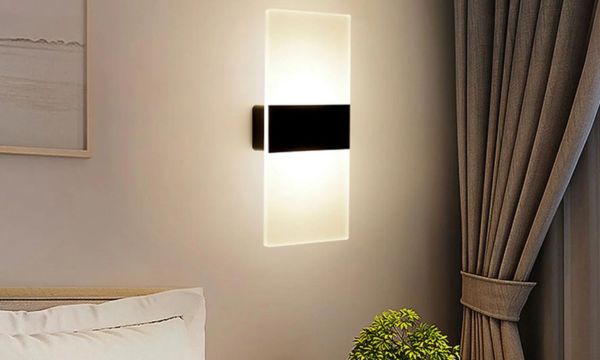Effortless Living: Smart Home Automation
The idea of a smart home was once just a dream from the distant future, but now we live in a fast-paced, technology-driven world where smart homes have become a reality.
Smart home technology is becoming increasingly popular as it makes homeowners’ lives easier, safer, and more energy efficient.
The integration of technology into our living spaces has changed the way we use our homes, making everyday tasks easier and more enjoyable.
1. The Foundation of Smart Homes
The Internet of Things (IoT) is what smart home management is all about. This refers to a group of gadgets and devices that are connected and communicate with each other via the Internet.
Some of these include smart speakers, security cameras, thermostats, and lighting systems. When these devices are combined, they can be controlled and automated from one place, making living spaces fluid and connected.
2. Get What You Need Easily
The unparalleled ease of use of smart home automation is one of its key benefits. Imagine being able to control the lighting, temperature, and security in your home with your hands.
These systems are controlled by smartphones and tablets, allowing homeowners to change settings, schedule chores, and receive real-time updates remotely.
For example, you can use your phone to make sure your house is at the right temperature when you get home from work.
In addition, you can play your favorite music, turn on the light, and even start the robot vacuum cleaner at the touch of a button.
This ensures that the home is ready to greet you when you walk through the door.
3. Reduce Consumption, Save Money and Energy
That’s not the only thing smart home technology can be used for. It is also environmentally friendly. The use of energy-efficient equipment and automated systems makes it easier to use less energy.
This will lead to a greener and more environmentally friendly life. For example, a smart thermostat learns your heating and cooling tastes over time and makes changes based on that information. This way you get the most out of your energy and lower your energy bill.
Smart lighting systems can also be set to turn off when not in use and change brightness based on the amount of natural light. This saves energy and reduces your ecological footprint.
Not only are these features good for the planet, but they can also save homeowners money in the long run.
4. Safer and More Secure
With the rise of smart technology, protecting your home has come a long way. Smart cameras, doorbell cameras, and motion sensors allow people to monitor their homes and send alerts in real time.
Homeowners can inspect their homes at any time, even if they are not present, as these devices can be viewed remotely.
In addition, smart locks and alarm systems make the home safer overall. You no longer have to worry about forgetting to lock your door because smart locks allow you to remotely control who has access.
In the unfortunate event of a security breach, a smart alarm system can call the police and send an alert to your phone, giving you peace of mind and taking quick action.
5. Customized Home Entertainment
Smart home automation not only makes our lives easier and safer but also our happiness. Voice-activated smart speakers and built-in home theater systems allow people to create their own unique immersive entertainment space.
With voice assistants, such as Alexa or Amazon’s Google Assistant, you can do many things without using your hands.
You can ask your smart speakers to play music, set the mood with changeable lighting scenes, and even dim the lights for a cinema-like experience.
Smart TVs, streaming devices, and audio systems work together to create a seamless entertainment environment. This makes movie nights and music sessions more fun and relaxing.
6. Future Ideas and Trends
As technology continues to develop, there are many ways to use smart home systems. The combination of artificial intelligence (AI) and machine learning will make intelligent systems more flexible and responsive.
Homes will become smarter, able to learn and change based on the people who live in them and their habits and tastes.
With the ease of use and connectivity that smart homes offer, privacy and security have become very important.
With more and more devices collecting and sharing data, homeowners must make security a top priority in their smart home networks to keep private data safe and prevent people from entering without permission.

Effortless-Living-Smart-Home-Automation (Source – Google)
Conclusion
Smart home management has changed our lifestyle, making life simpler, safer, more interesting, and energy-saving.
The Internet of Things (IoT) has made many homeowners’ dreams of an automated home less of a fantasy and more of a possibility.
As we continue to adopt these new technologies, the future of smart homes will be filled with exciting options that make life easier and better for everyone.
With smart home automation, living without having to do anything is no longer just a dream. That is a real possibility.
FAQs
1. What does ‘smart home’ mean?
Integrating technology into your home to make it easier to use, safer, and more energy efficient is called “smart home automation.”
It uses the Internet of Things (IoT) to connect and process different systems and devices, allowing homeowners to manage their homes remotely.
2. What types of gadgets can be added to a smart home?
Smart thermostats, lighting systems, security cameras, doorbell cameras, smart locks, voice-activated smart speakers, and entertainment systems are just some of the devices that can be added.
A smart home can have almost any gadget that can be connected to the internet and controlled remotely.
3. How does smart home automation make life easier?
Smart home automation makes homeowners’ lives easier by letting them use their smartphones or other smart devices to control and view home systems.
This includes remotely changing temperature, lighting, and security settings, making daily chores easier and faster.
4. Can a smart home system help me save electricity?
Yes, smart home technology can indeed help you reduce energy consumption.
Smart lighting systems can change the brightness of lamps based on the amount of natural light, and smart heaters can learn user preferences and adjust temperature and humidity accordingly.
This means that less energy is used and the electricity bill goes down.
5. What role does security play in smart home automation?
Security is very important when you automate your smart home. Smart cameras, motion sensors, doorbell cameras, and smart locks allow you to monitor the security of your home in real time and gain more control.
If strange activities occur, alerts and notifications are sent to households, making them feel safe.
6. How can smart home technology improve the way you enjoy entertainment?
Smart home automation makes entertainment better by connecting devices such as home theater systems, voice-activated smart speakers, and smart TVs.
Voice commands allow users to control audio, video, and lighting for activities such as movie night or listening to music, creating a unique and engaging experience.
 Climate Control Revolution: Embracing the Future with Smart Thermostats
Climate Control Revolution: Embracing the Future with Smart Thermostats
As new technologies change every aspect of our lives, smart thermostats have become an important part of […]
More Enhancing Security with Smart Doorbell Cameras
Enhancing Security with Smart Doorbell Cameras
In an era of constant technological advancement, smart products are becoming more and more common in our […]
More Illuminate Your Space: Motion Sensor Lights
Illuminate Your Space: Motion Sensor Lights
Motion sensor lights are one of the most useful and creative forms of modern lighting. They can […]
More